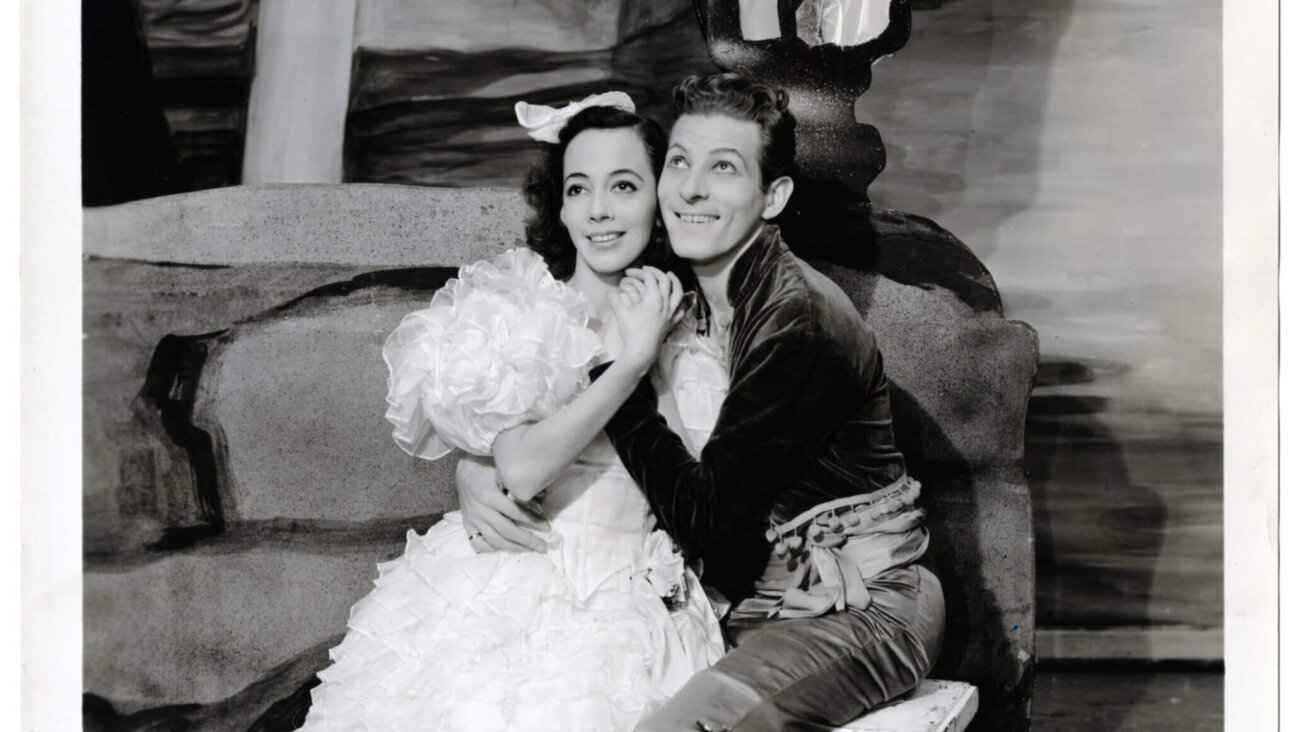How the Forger of Brighton Beach Duped The Claims Conference

In the current plight of the Ukrainian people, novelist Boris Fishman sees his family’s Jewish struggle. Image by Rob Liguori
A Replacement Life: A Novel
By Boris Fishman
Harper, 336 pages, $25.99
Like the Soviet Union, from which its main characters hail, Boris Fishman’s debut novel, “A Replacement Life,” is a good idea in theory, if not in execution.
After his grandmother dies, aspiring writer Slava Gelman is asked by his grandfather to forge a Holocaust restitution claim for the Conference on Material Claims Against Germany. All he would have to do would be to take his grandmother’s story of life in the Minsk ghetto and among the partisans in the Belarusian forest and make his grandfather — who had spent most of the war faking insanity in Uzbekistan — the main character instead. At first, Gelman righteously refuses. Then he gives in. And not only does he give in, he also begins to write up false submissions for what appears to be every Russian-speaking pensioner in New York.
What might drive an ambitious young man, all too aware of the potential consequences, legal and otherwise, of his actions, to become “the Forger of South Brooklyn”? The answer is implied by the book’s title: Gelman supplants not only the lives of the elderly men who didn’t suffer in quite the right way to merit a monetary reward, but also his own, going from a loserish researcher at Century, a New Yorker-like magazine, to the writer he so ardently longs to be.
Knowing very little of his grandmother’s story — she did not like to talk about her wartime experience — Gelman uses the scant details he’d gleaned to construct narratives that lyrically render deprivation and desperation: A woman strangles her baby so that the crying child will not reveal their hiding spot to the approaching Nazis; the partisans contemplate executing a young girl who has lost the cows they need for food.
But everything that is right about Gelman’s enterprise is conspicuously missing from Fishman’s. In an attempt, perhaps, to get at big topics like the Holocaust, Fishman foregoes the exploration of small, intricate details that might have made “A Replacement Life” genuinely insightful and revealing. For instance, in the year before his grandmother’s death, Gelman assiduously worked to separate himself from his family, retreating to a Manhattan studio and his work at Century and refusing to set foot in the old neighborhood. This deliberate estrangement is noted only on the surface, likened to the old trope of the immigrant’s name change. But there is a story there that goes untold: How does a foreign-born, American-bred child find an authentic position in a world where he is frustratingly in-between?
Moreover, Gelman’s family — the family he has tried to escape, the family he returns to — remains frustratingly opaque. Sporadically, we get hints: the father who is frustrated at his grandfather’s imperious behavior, his mother who loves and resents him. Even his grandfather, the ostensible center of the book, is sketched, given an iron will and a flexible moral compass and not very much else.
Other missing details include the means by which Gelman, who makes $25,000 at his job, is able to afford an apartment in a doorman building on the Upper East Side. (It’s a studio and it’s 2006, but still.) Also lacking explanation are the means by which the perpetually-down-on-his-luck Gelman attracts not one but two beautiful, have-it-all-together women, both of whom fall improbably in love with him, and whose function seems to be to make our protagonist reach important realizations.
Fishman peppers the novel with self-consciously poetic imagery. (There is an index, tracking the allusions, as well as an “Author’s Note” indicating that “Life is sin and art is theft.”) To his credit, this is nowhere near as insufferable as it sounds; mostly, he makes it work, especially if we are to understand, as I think we are meant to, that Gelman’s desire to be a writer has shaped his sensibilities. Fishman’s ability to render Gelman’s sensibilities is in its own way impressive, but in depicting Gelman’s attempt to replace his life with a story he believes to be more compelling, Fishman loses the chance to tell a much more genuine and possibly illuminating one. The novel’s epigraph is taken from the Cuban writer Reinaldo Arenas’s final novel, “The Color of Summer”: “All writing is revenge.” It is just unfortunate that the revenge here seems to be taken on the untold story that occasionally shimmers through the cracks.
Yevgeniya Traps is a frequent contributor to the Forward.

I hope you appreciated this article. Before you go, I’d like to ask you to please support the Forward’s award-winning journalism this Passover.
In this age of misinformation, our work is needed like never before. We report on the news that matters most to American Jews, driven by truth, not ideology.
At a time when newsrooms are closing or cutting back, the Forward has removed its paywall. That means for the first time in our 126-year history, Forward journalism is free to everyone, everywhere. With an ongoing war, rising antisemitism, and a flood of disinformation that may affect the upcoming election, we believe that free and open access to Jewish journalism is imperative.
Readers like you make it all possible. Right now, we’re in the middle of our Passover Pledge Drive and we need 500 people to step up and make a gift to sustain our trustworthy, independent journalism.
Make a gift of any size and become a Forward member today. You’ll support our mission to tell the American Jewish story fully and fairly.
— Rachel Fishman Feddersen, Publisher and CEO
Join our mission to tell the Jewish story fully and fairly.
Our Goal: 500 gifts during our Passover Pledge Drive!
























